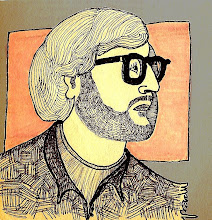sábado, 16 de noviembre de 2013
Sonny Rollins
Recorded at the Van Gelder Studio, Hackensack, New Jersey on October 5, 1956. Originally released on Prestige (7095). Includes liner notes by Ira Gitler.Digitally remastered by JVC using XRCD (Extended Resolution Compact Disc) technology.Recorded in 1956, the year after Charlie Parker's death, ROLLINS PLAYS FOR BIRD consists primarily of a seven-song medley of tunes associated with Bird's post-1950 period. In the course of referencing this repertoire, Rollins succeeds in paying tribute to a great artist without descending into mere mockery. Bird's playing was the definition of bebop phrasing and Rollins has moments here that are clearly quotations of the altoist's rhythmic sensibilities. This is a carefully titled album, however: it's not "Rollins Plays Bird," but "Rollins Plays 'For' Bird."Anyone who wants reassurances of authenticity need only look to the sidemen credits. Trumpeter Kenny Dorham was on many of Bird's own recordings, as was drummer Max Roach. Pianist Wade Legge and bassist George Morrow, while not Parker alumni, were working with Rollins, Roach, and Dorham in the Max Roach Quintet at the time of this session. "I've Grown Accustomed To Your Face" is a ballad feature for Rollins, while his original "Kids Know," a cooking quintet tune in 3/4 time, provides conclusive proof that the tenorist was in full possession of his own voice on this date.
Etiquetas:
George Morrow,
jazz,
Kenny Dorham,
Max Roach,
Sonny Rollins,
Wade Legge
The Dodos
Visiter is the second album released by The Dodos. A special edition is being put together to include a DVD of live footage from the last show of their most recent tour.
In an April 2008 interview in the L.A. Record, band member Meric Long revealed the origin of the name of Visiter. "The reason it’s misspelled is because it’s from a drawing this kid gave us. We played a show for a bunch of kids in South Central L.A.—Dorsey High. A friend’s sister [Barbara Lempel] is a special-ed teacher there, so we went down there to her class and we played for the kids and it was super fun. Then it came to the kids asking us questions and then one of the kids came up to us and he gave us a drawing with that written on it. The drawing is the cover actually of the album, and just—I dunno we liked it. Actually we used all of the drawings that the kids made in the artwork on the album. It was definitely a fun, interesting venture for us. We’d never played for kids before—we didn’t know what to expect but they were clapping and dancing." Phares, Heather. "Visiter - The Dodos | AllMusic". allmusic.com.
Godspeed You! Black Emperor
Godspeed You! Black Emperor, grupo catalizador del crecimiento, asentamiento y maduración del paradigma de experimentación post-rockera. La razón de ello es su reciente vuelta al ruedo fonográfico con su álbum “Allelujah! Don’t Bend! Ascend!” a fines de 2012, tras un largo hiato de 10 años desde la publicación del trabajo anterior “Yanqui U.X.O.”. Ahora, de la mano de David Bryant [guitarra, dulcémele, Portsound, kemençe], Efrim Manuel Menuck [guitarra, hurdy-gurdy], Michael Moya [guitarra], Sophie Trudeau [violín, sintetizador Casio SK5], Thierry Amar [bajo, contrabajo, teclados], Mauro Pezzente [bajo], Aidan Girt [batería] y Bruce Cawdron [batería, vibráfono, marimba, glockenspiel], GODSPEED YOU BLACK EMPEROR! reconstruye su visionaria mirada musical para orientarla hacia este catálogo de nuevos paisajes sónicos. Cabe destacar, de entrada, la manera tan decidida en que el ensamble ha remodelado sus propias raíces tal como se plasmaron en clásicos como “Lift Your Skinny Fists Like Antennas To Heaven” y “F#F#∞” para insuflarles un vigor fresco que varias veces roza con la pura polenta rockera: el resultado se traduce en una amalgama sonora donde la exaltación de la energía y la celebración de las dimensiones más oscuras del orden del universo se conjugan a la perfección. Pasemos al repertorio mismo del álbum para penetrar en los detalles de los cuatro temas que conforman su repertorio. “Allelujah! Don’t Bend! Ascend!” resulta, en el balance final, una nueva cátedra fenomenal de cómo se hace y rehace el discurso del post-rock a través de las conjugadas labores del refinamiento intelectual, la neurosis emocional y la ansiedad moral. Cesar Inca.
Etiquetas:
Goodspeed You Black Emperor,
Rock
Suscribirse a:
Entradas (Atom)


















